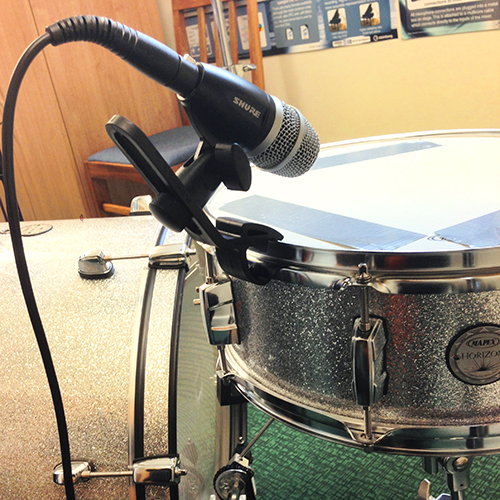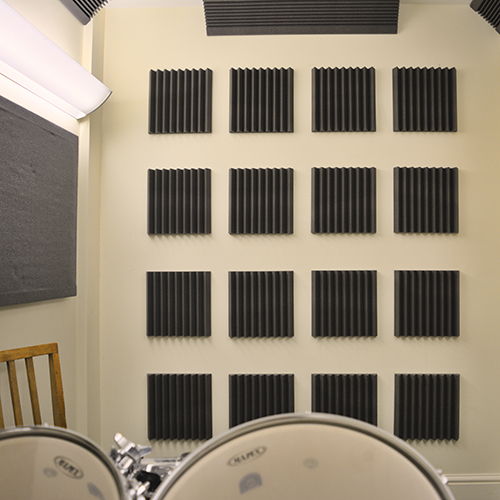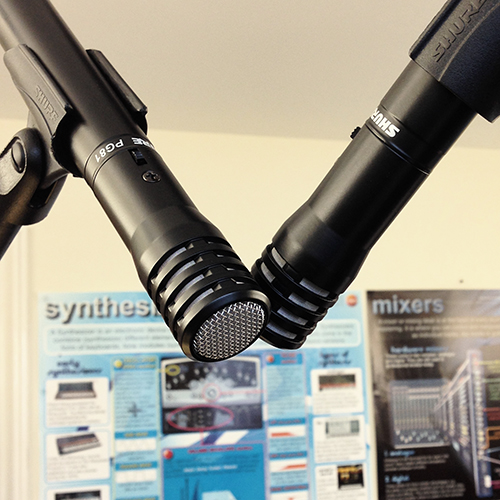Music
You might also like...
The aim of the Music Department is to provide all members of the school community with an exciting and stimulating music environment that challenges and inspires, enhancing pupils’ and teachers’ overall school experience.
Music plays an important part in daily school life including hymn-singing in assembly and regular music performances, as well as communal singing at end of term celebrations. It often has a cohesive role to play in the overall school. The vast majority of A Level students go on to study music at university level; recent leaver destinations include Durham, Newcastle and Birmingham. There is no doubt that music plays an essential part in everyone’s life and the Department resolves to ensure that music is viewed enthusiastically and that pupils leave school with confident and positive musical opinions. Girls in Years 7, 8 and 9 have two periods of music per week. Girls opting to take the GCSE take the Edexcel specification and A Level music students study the Eduqas specification.
Key Stage 3
Classes have a double lesson every week for music and learn basic skills of musical literacy, listening and appraising, composition and performance covering a variety of different musical idioms: the Year 7 curriculum for example includes studies of Vivaldi’s Four Seasons violin concertos, and African and Chinese music; Year 8 encompasses Stravinsky Firebird Ballet and Rock and Roll; Year 9 study the Blues at one end of the spectrum and Opera at the other. The emphasis is very much on enjoying the subject and much of the work in class is practical with written homework often involving research on the internet.
Each year group attends one annual outing relevant to the course each year:
- Year 7 attend a Gamelan (Indonesian music) workshop;
- Year 8 prepare a Samba drumming piece during a workshop and performed it in a school concert;
- Year 9 attend a performance at the Royal Opera House.
GCSE
A significant minority of girls take music to GCSE which follows on logically from the Key Stage 3 course. Pupils continue to concentrate on the three skills of performing, composing, and listening and appraising. Note-reading skills are certainly advantageous to all parts of the course and pupils nearly always have individual lessons on their instrument/singing. Performance and composition are undertaken during the two year course and a portfolio of the best work in both papers is sent for moderation to the Examination Board. There is one listening paper, based on familiar musical extracts, which is sat during the examination period.
The small classes make for a relaxed atmosphere whilst of course encouraging and expecting a serious and committed approach. GCSE students are expected to support the co-curricular life of the Department and all sing in the Senior Choir.
A Level
Music at A Level requires a considerable degree of technical knowledge and performing expertise. It is a particularly highly regarded qualification involving a wide range of skills. Pupils demonstrate their performing and presentation skills in coursework undertaken during the second year and submitted as a portfolio to the examination board. Composition techniques are studied culminating in a composition which is written under supervised study circumstances. The written paper involves a combination of short answer essays, some listening excerpts to respond to and some harmony exercises.
The Music Department is well-resourced with two class teaching rooms. In addition there are nine music practice rooms and a Studio Theatre (with a grand piano) which is used for small performances (shared with the Drama Department). There are upright pianos in each of the music rooms and a Bösendorfer Grand Piano in the School Hall which is used for assemblies, whole school performances, the annual Music Competition and termly evening concerts. Performances also regularly take place in local venues such as Cadogan Hall and St Paul’s Cathedral. The school has a harpsichord on permanent loan and access to the organ at St Mary’s Church, Bourne Street (over the road from the school) as well as some orchestral instruments, guitars and electric guitars. There is a full array of classroom percussion instruments including enough glockenspiels, xylophones and metallophones for each member of a Key Stage 3 class to have her own instrument.
The Department makes use of lots of specialist music software, including Logic, Focus On Sound, Soundtrap and Sibelius. There is a full time Events and Music Technician who undertakes the recording of events.
Individual music lessons are available in a wide variety of instruments, including Flute, Recorder, Oboe, Clarinet, Saxophone, Bassoon, Trumpet, Trombone, French Horn, Percussion, Harp, Violin, Viola, Cello and Music Theory. Girls in Year 5 upwards may also take Singing lessons. Many of the visiting music teachers perform professionally and appear with noted orchestras, ensembles and bands. Girls are prepared for ABRSM examinations and LCM examinations in Musical Theatre.
Music plays an important part in the life of the school and there are musical performances throughout the year, including formal concerts, chamber concerts and lunchtime concerts. We also have a daily hymn in assembly. There is an annual Carol Service and other services on the School’s Birthday and at Church services. The annual Fanny Davies Music Competition is keenly contested and attracts entries from across the Junior and Senior Schools.
The Music Department runs a number of musical groups, catering for different musical interests and levels of performance. There are six different choirs in the School. The Junior School Choir, Lower School Choir and Senior School Choir are open to anyone in the relevant part of the School who wishes to take part. All the choirs sing a range of traditional and modern songs and always perform at school concerts and Church services. The Lower School Choir for Years 7 and 8 goes on a Choir Tour in May; recent destinations have included Venice, Prague, Paris, Seville and Edinburgh.
There is a Chamber Choir in both the Junior School and Senior School; members of these choirs join by invitation and they have opportunities to sing at outside venues as well as at school events. They often combine with the strong staff choir to perform more difficult pieces.
There are numerous instrumental groups including a Flute Group, String Group, Saxophone Ensemble and Jazz Group. These groups are open to all ages and all standards and they offer the chance to perform at school concerts. The School orchestra is for girls at Grade 4 and above and practises during Friday lunchtimes.
Staff
Miss H Vickery – Director of Music
Miss D Houlder – Head of Junior School Music
Mr E Mercer – Head of Co-Curricular Music
Miss M Gajic Murata – Music Administrator and Composer in Residence
Mr B Page – Events Technician
There are also 20 visiting instrumental and singing teachers who provide individual tuition for most of the pupils in the school (for an extra fee) covering a wide range of instruments: piano, organ, violin and viola, ‘cello, double bass, harp, flute, clarinet, oboe, recorder, saxophone, trumpet, trombone, guitar, drum-kit and singing.
Music Technology
Music Technology enjoys a strong supporting role in enhancing the positive effect of music in the school and reinforcing the importance of technology in today’s world. All of our concerts and competitions are recorded using high quality audio equipment, to create lasting memories of performances, and to offer valuable opportunities for reflection and self assessment. Pupils also have the chance to experiment in Music Tech club and to help the events technician with performances.
Latest School News











